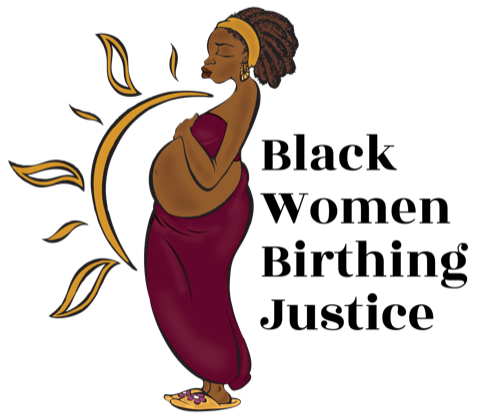I’ve been a doula my whole life and never even knew it…
A little over a month ago, I underwent the Birth Arts International (BAI) training in Philadelphia, PA.
Taught by a former midwife, my course included a two-day weekend intensive alongside seven other individuals from various walks of life. I came to the table having never witnessed a birth but with an internal certainty that this was my calling: supporting people through transitions.
The BAI birth doula training was wondrously informative. I had done my research on a number of certifiying bodies and I went with BAI because of their affordable price and their wholistic style of teaching. As I went through the weekend, I found the content to be both new and intuitive, as if the knowledge was already within me and the training itself was the awakening. Ideas were locking into place. In reality, reproductive organs of any human body come with baggage, stigma and possibly experiences of trauma. As a birth worker, we were advised to keep this in mind as we proceed in our practice. There was a lot of head nodding and scrambling (at least on my end) to jot down all the gem/”tweetable” phrases that poured from the mouth of our teacher and my course mates. It was truly a memorable experience.
So, what is a doula?
The word comes from the Greek term meaning female servant or person who serves women. A birth doula, as we think of it today, is a partner and an advocate; someone who shows up for a person in labor and provides guaranteed, continuous support throughout the process of childbirth. The work of doulas is something that has been done by elders in the community or in the families of our ancestors and dates way back. What’s shifted is the proximity that we live to these elders, the breakdown of our communities, and the increased presence of technology in our care experiences. Bedside nurses used to be champions of the art of standing with or holding space for those in need. Now, we find that machines are the only things that are tethered to during our hospital stays. The whole deal can feel lonely and intimidating.
As a result, I as a doula become a natural buffer, offsetting the coldness of these highly mechanized spaces. As a witness to birth, I do my job by supporting the laboring person in their completion of theirs. I am not a medical professional; I leave the delivering of the baby and the vital checks to the on-call nurses and my client’s primary physician. The fact that I am not emotionally connected to the client (as their parent or partner may be), makes it easy for me to not get caught up in the overwhelming emotions that accompany a huge transition like childbirth. Prior to the big day, I offer a handful of prenatal visits with the expecting parents to walk through the stages of labor and the myriad of comfort and counterpressure exercises that I was trained in with BAI.
In the birthing room, I am present to help maintain a sense of calm in the room. I can also act as the brain of the birth team. While the laboring person goes into “labor land” and stays in a primal space, I can do the thinking by suggesting different birthing positions and strategies. I’m not there to protect anyone from the “pangs” of labor, but I am there to serve and empathize whenever needed.
Some of the things a doula should possess…
Excellent phone service for emergency calls
A (Mary Poppins) bag of snacks and goodies for birthing team, aka a “doula bag”
A strong sense of self awareness and superior listening skills
An interest in learning different approaches to childbirth
The lion's share of our training was going through the physiology of birth. We walked through ways of identifying when your client is in each of the four stages of labor. A portion of our talk was also dedicated to the actual doula profession. We covered marketing, contracts, suggested scripts for consultations and formulas for coming up with our service price tag.
What it means to “show up” for a client
In a time when unnecessary medical intervention is on the rise in the maternity wards of hospitals across the nation, having access to continuous labor support is a true value. Regardless of my personal beliefs on what type of birth is best, my priority when it comes to my client is simply being present for them and whoever else they choose to join them in the labor room. When a partner runs to the rest room, a family member passes out, or when a hospital staffer is focused on the baby, that’s when I zoom in on the laboring person, so they know that I am with them, first and foremost.
-------
Camylle Fleming is a Washington, DC area-native and newly minted birth worker with plans of becoming a nurse-midwife with an international focus. Professionally, Camylle works as a personal assistant to the VP of CaringGivers LLC, a home health aide company that provides care to seniors and as a nanny supporting children and families throughout the nation’s capital. In her previous life, she worked in law and government, first as a paralegal with Covington & Burling and then as a White House staffer to the Obama Administration. Camylle is a big sister, a watercolorist, traveler and a writer at all other times.

